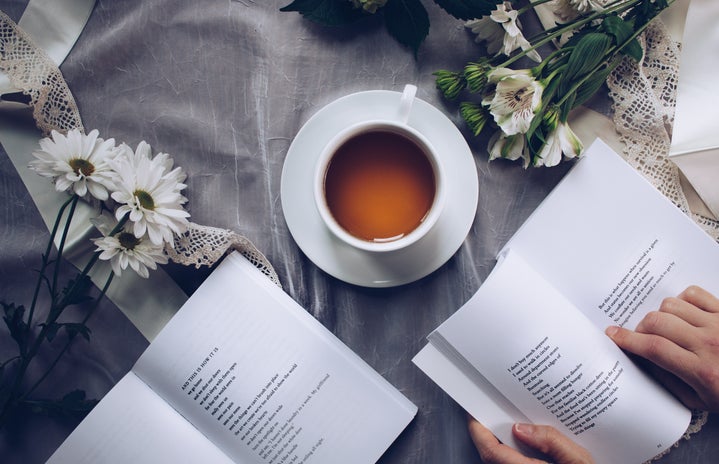The Value of Poetry by Eric Falci is the name of a book that I had to read for my Introduction to Contemporary Poetry class last semester. I read every excerpt of this book that our professor assigned to us, and I tried to apply the information to the poems in the class and beyond. But to be honest, despite my efforts, my analysis never could quite be explained in the definitions that Falci provided.
The real value of poetry, I have found, lies of course in its conventions, but also in something beyond that. I know that coming from an English major, this statement can seem dramatic and nonsensical, but I truly believe that finding value in poetry is one of the best ways we can learn to enjoy life.
1.“In a Station of the Metro” by Ezra Pound:
Ezra Pound’s imagist poem spans two lines and fourteen words, yet I have probably pondered its meaning for more time than I can count. What does the black bough symbolize? Is this just a poem describing the passersby in a train station, or does it say something about brevity as humans on Earth? Pound’s poem was published over a hundred years ago, and still, it keeps you wondering. Not only this, but its simplistic language paired with a complex meaning has been mimicked by modern poets left and right. This poem shows just how powerful a few words can be.
Life-Changing Quote:
“The apparition of these faces in the crowd:
Petals on a wet, black bough.“
Life-Changing Quote:
2. “The Love Song of J. Alfred Prufrock” by TS Eliot:
Eliot and Pound were good friends during their lifetime (Pound was basically Eliot’s peer editor on his seminal work “The Wasteland” — which you should also probably check out). However, where Pound was known for his simple, short poems, Eliot was known for his sprawling masterpieces about life’s worth and purpose in the era after the first World War. “The Love Song of J. Alfred Prufrock” is a perfect example of this, as it is a dramatic monologue from the perspective of a man who is so timid and stuck in his ways that he never takes a chance on any of the things that would make his life worth living. “Do I dare?” has become one of my life mantras, akin to my other life mantra “Carpe Diem,” that I got from my favorite movie. Whenever I read this poem, I of course admire Eliot’s mastery of the English language, but I have a stronger urge to never be able to measure my life with coffee spoons like its titular speaker.
Life-Changing Quote:
“Do I dare
Disturb the universe?
In a minute there is time
For decisions and revisions which a minute will reverse.
For I have known them all already, known them all:
Have known the evenings, mornings, afternoons,
I have measured out my life with coffee spoons“
3. “Oranges” by Gary Soto:
Soto’s simplistic free verse poem “Oranges” is a more recent read for me, as I read it for the first time in an English class last semester. However, despite how different it is from the two poems above, I think I love it as much (or maybe even more) than I love them. “Oranges” fills me with a sense of childhood wonder, excitement, and love, eliciting emotions from me like no other piece of written word has. Whereas the two poems above make me think, “Oranges” makes me feel. And sometimes, that is just so much more important.
Life-Changing Quote:
“I peeled my orange
That was so bright against
The gray of December
That, from a distance,
Someone might have thought
I was making a fire in my hands.“

